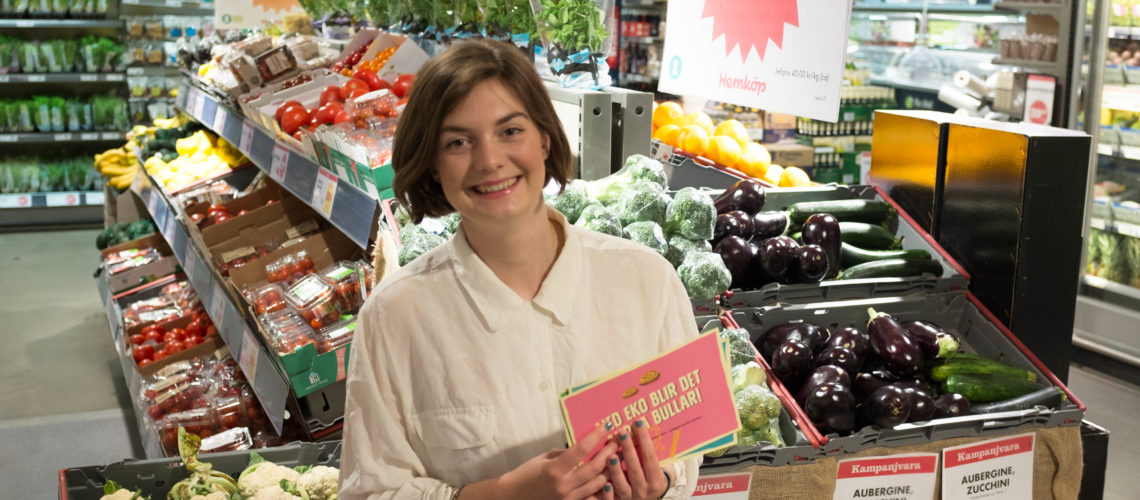Swedes promote organic “fika” in supermarkets
Elin Nässlander is an engineer and one of many activists, who campaigned in Sweden during Green Action Week 2015. She promoted “organic fika” (coffee and sweetened bread) to the Swedish public in a local supermarket.
Swedish people are generally aware of the fact that organic food is positive for human health, but they know less about its positive effects on the landscape and for the producers.
106 local branches of the Swedish Society for Nature conservation campaigned during Green Action Week 2015. Coffee meals including some sort of sweetened bread – “fika” – is a common concept in the Swedish society, gathering the majority of Swedes every day at the coffee tables around the country. Therefore, SSNC decided to focus on coffee and bread last year. Activists held “organic fikas” for more than 2 700 people at workplaces and schools all over Sweden using a set of “organic fika cards” with explanations to the most common queries related to the organics. Information texts were furthermore placed on the serving trays of all Swedish trains in order to create awareness of the positive aspects of consuming organic at the “fika breaks”.
Meeting the public in supermarkets
A large number of activists also spent time in local supermarkets serving coffee and cookies while discussing the advantages of organic production and consumption with the shoppers. Elin Nässlander was one of them. She says that campaigning is fun for the campaigners, who need to study facts about the theme before meeting the public, but who also get the opportunity of discussing the organic issue with different kinds of consumers who would like to learn more.
Global perspectives an eye-opener
Elin thinks that a global campaign on the advantages of growing and consuming organics may have impact on different levels.
– I hope to contribute with awareness and experiences from a number of perspectives embracing a wide range of actors from farmers to end consumers. At SSNC in Stockholm, I got the opportunity of meeting an activist from the civil society organization, IBON in the Philippines, also promoting organic consumption within the Green Action Week framework. To hear Sonny from the Philippines speak about the challenges of his country was an inspiring eye-opener for me and helped me in formulating my own campaigning message.
Elin thinks it is important to engage more young people in the work for a pesticide free production and consumption and would like to increase the information to schools about the advantages of organic food.
Organics – the natural choice in future
We asked Elin what she thinks that the organic consumption and production would look like in ten years’ time?
– I think organic will be the natural choice for most people in future and not remain the luxury thing it has been in the past. I also hope that people will consume more locally produced food and adapt their consuming habits to the season.
